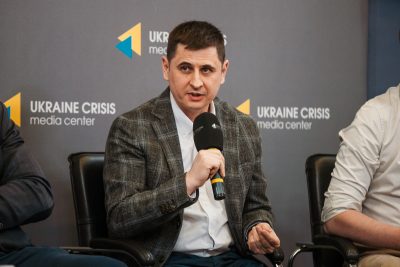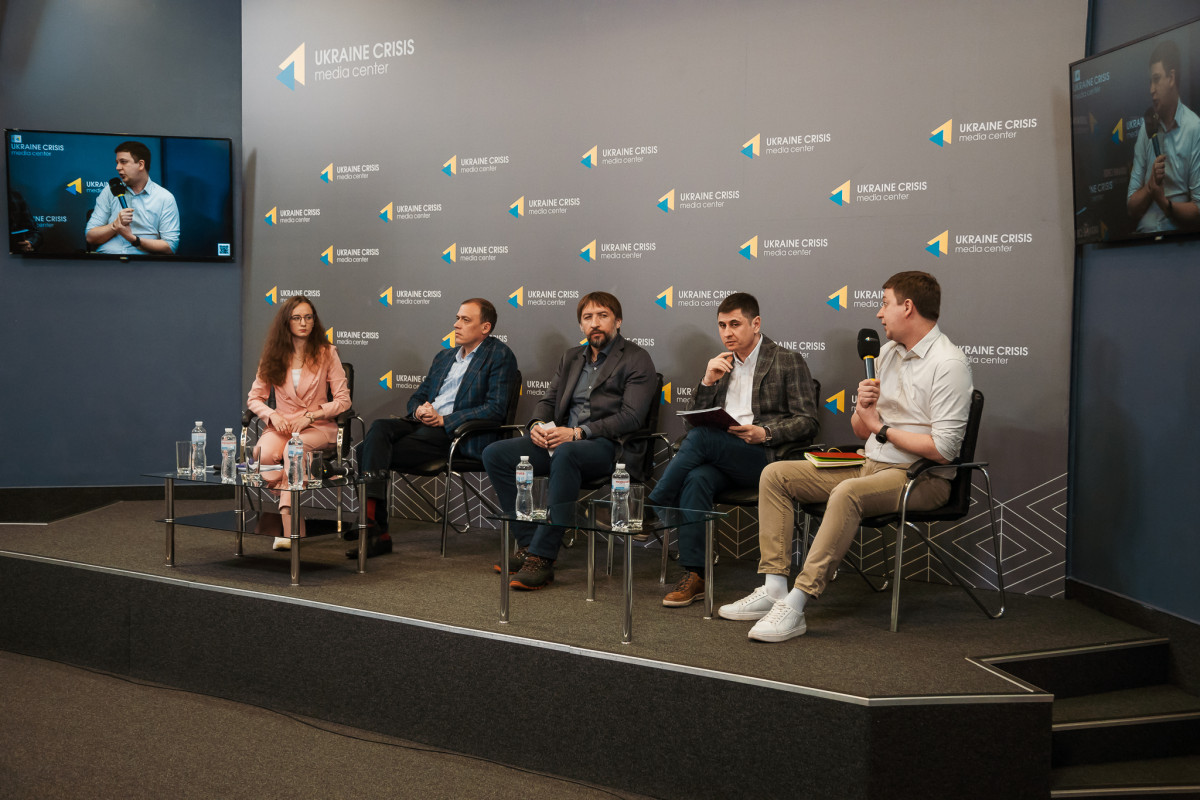

On June 14, Transparency International Ukraine presented the results of a sociological survey, which interviewed the population and entrepreneurs about their vision of the post-war reconstruction of Ukraine.
The research commissioned by TI Ukraine was conducted by Info Sapiens agency, and supported by the USAID Project Support to Anti-Corruption Champion Institutions (SACCI).
Corruption comes second among the main problems for business representatives and third for the population of Ukraine as of now. Ukrainians do not think of quick “repairs,” but expect the restoration to last about 10 years.
Respondents believe that reconstruction should be primarily high-quality, planned in advance, it should adhere to the principles of decentralization of funds and transparency, and all processes should engage both citizens and business.
Reconstruction is difficult and long; thus, people were asked about their main concerns. It is stunning that for Ukrainians, corruption — the resumption of corruption schemes and the lack of control and, as a result, embezzlement of funds, come first and second, while the resumption of hostilities only comes third.
“We have observed that society has become more demanding and harsher. It will not forgive denying its role in future processes,” said Anastasia Mazurok, Deputy Executive Director for Operations, Transparency International Ukraine.
The presentation of the results was attended by representatives of various spheres — government, business, civil society, and international partners. Find out about the important opinions and key points that were voiced at the event below.




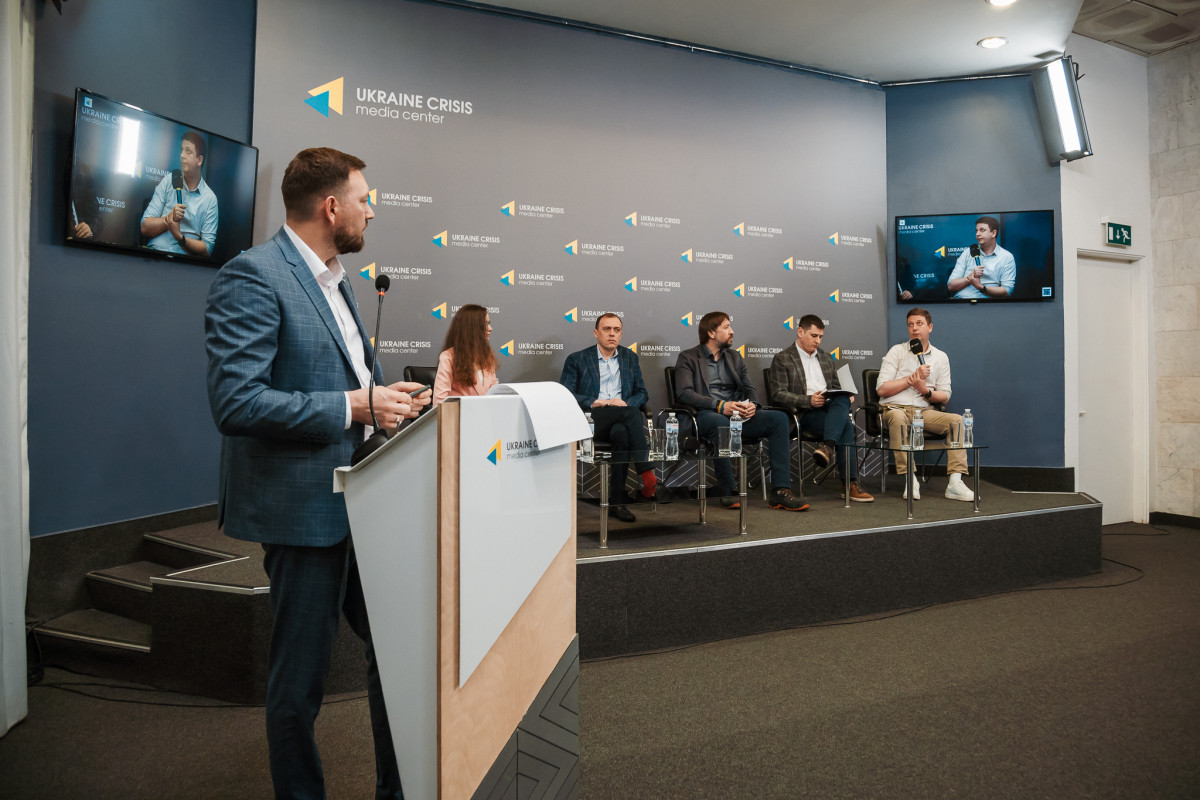
Presentation of the results of the survey “How to rebuild Ukraine” © Photo by Serhii Khandusenko
Ukrainian business really understands the seriousness of corruption. Yuriy Kryvosheya, co-owner of Toronto-Kyiv, confidently stated: “Corruption is also the tool through which the war came to us. In order for Ukraine to respond to the challenges of the war, all stakeholders need to start negotiations.”
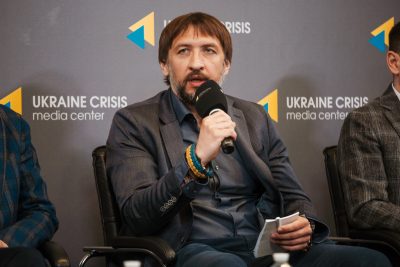 Yuriy Kryvosheya, co-owner of Toronto-Kyiv and Chairman of the Supervisory Board of Promprylad.Renovation © Photo by Serhii Khandusenko
Yuriy Kryvosheya, co-owner of Toronto-Kyiv and Chairman of the Supervisory Board of Promprylad.Renovation © Photo by Serhii Khandusenko
Combining efforts into one consolidated force is the statement that was most clearly emphasized by all those present at the presentation. The importance of this is confirmed by the results of the survey: 72% of Ukrainians state that they are ready to personally participate in the discussion of projects in their community.
However, Aider Khalilov, senior program manager of the Program for the Promotion of Public Activity “Engage!” (USAID/ENGAGE), who works closely with the public, noted that there was a difference between awareness of the opportunities to participate in state processes and the actual use of these tools. “Most Ukrainians choose passive methods of engagement, for example, to sign an electronic petition,” said Aider Khalilov.
Aider Khalilov, senior program manager of the Program for the Promotion of Public Activity “Engage!” (USAID/ENGAGE) © Photo by Serhii Khandusenko
The study confirms this trend — before the beginning of the full-scale invasion, people picked primarily such activities as monetary donations, volunteering and, effectively, an analogue of petitions — voting in Diia.
Civil society organizations can help engage citizens in various processes and discussions, becoming intermediaries between the community and the population. Moreover, 89% of Ukrainians demonstrate full or partial trust in them. This opinion coincides with the vision of the representative of international partners.
Bohdan Boiko, project manager of the USAID recovery project Support to Anti-Corruption Champion Institutions (SACCI) said: “The authorities in cities and communities should engage citizens, whereas representatives of civil society should monitor the processes and unite their efforts with cities and public authorities.”
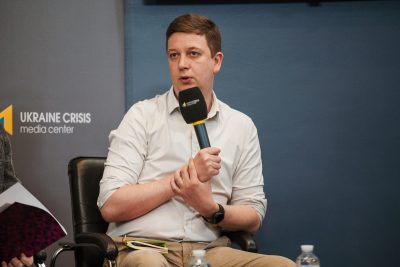 Bohdan Boiko, project manager of the USAID recovery project Support to Anti-Corruption Champion Institutions (SACCI) © Photo by Serhii Khandusenko
Bohdan Boiko, project manager of the USAID recovery project Support to Anti-Corruption Champion Institutions (SACCI) © Photo by Serhii Khandusenko
International partners expect the authorities to develop an effective state policy and a strategy that will consider the interests of the state, communities, and civil society and, of course, to comply with the principle of open data, providing access to monitoring, transparent policies — this is especially important for local authorities that communicate more closely with citizens.
Dmytro Turchak, Director of the Strategic Planning Department of the Ministry of Communities, Territories and Infrastructure Development, assured that for his part, he realized the expectations of all parties to the reconstruction.
“The first thing the authorities are expected to ensure is transparency and accountability. It is essential to emphasize that not only the authorities have to ensure these principles, but also civil society and supervisory bodies. They are responsible for monitoring and tracking compliance with all norms,” Dmytro Turchak summed up.
 Dmytro Turchak, Director of the Strategic Planning Department of the Ministry of Communities, Territories and Infrastructure Development © Photo by Serhii Khandusenko
Dmytro Turchak, Director of the Strategic Planning Department of the Ministry of Communities, Territories and Infrastructure Development © Photo by Serhii Khandusenko
Let us not forget about the control over communities, where most of the funds allocated for reconstruction will be channelled. This is the decentralization towards which the majority of the population and business representatives lean. Since each affected community has its features and, accordingly, plans, the funds should also be channelled to each project directly.
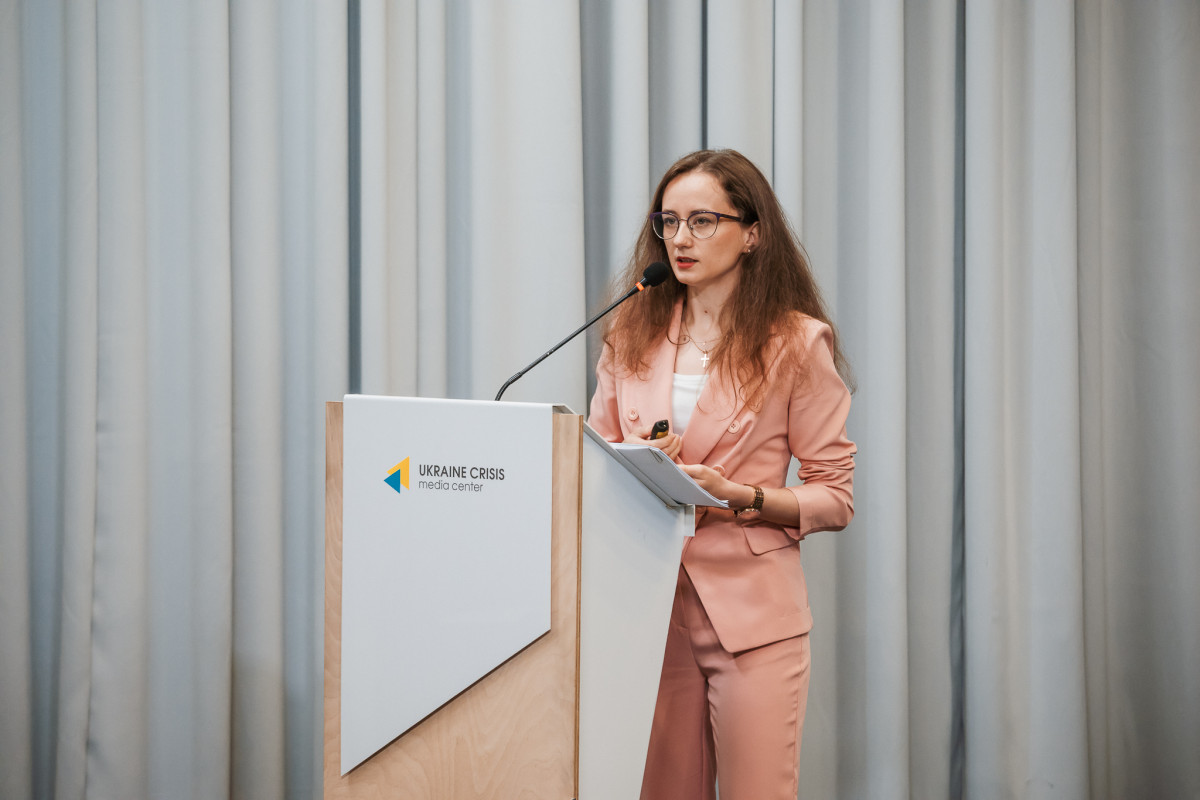


Presentation of the results of the survey “How to rebuild Ukraine” © Photo by Serhii Khandusenko
The consolidation of efforts, discussed by the guests of our event, has special aspects that need to be mentioned.
- Firstly, a certain passivity of Ukrainians, which was noted earlier by Aider Khalilov, is an obstacle. Bohdan Boiko, in turn, noticed that Ukrainians tend to consolidate easily and quickly in the case of a serious challenge. But as soon as the trigger passes, there is a strong rollback of activity. Therefore, the difficulty of the task of “consolidating and engaging” is to keep the attention of the population, to encourage action.
- Secondly, Ukrainian business as an indispensable participant in the reconstruction is under pressure. Entrepreneurs are forced to balance between their survival and assistance to the state. According to Yuriy Kryvosheya, business has a great need for support because its capabilities are limited, but it significantly impacts the economy of the state, and without the economy, it is difficult to win this war. In addition, business should not be the object, but the agent in discussions, in order to retain the opportunity to actively participate in the reconstruction processes.
- Thirdly, there is a sharp competition between stakeholders for expert personnel. The state constantly competes with business and civil society for personnel. But as Dmytro Turchak from the Ministry of Communities, Territories and Infrastructure Development noted, the authorities cannot be “on an equal footing” with them because they offer low salaries. Therefore, specialists, who were “raised” and trained in ministries, easily go on to work in business, civil society, and international organizations.
Summing up the discussion, to solve the challenges of reconstruction, Ukrainians really need to unite and join many processes. To do this, we need a constructive dialogue and a number of opportunities that are useful and beneficial for both citizens and business.
Most importantly, we require an effective reconstruction strategy and the possibility to control all its processes transparently, without unnecessary effort. It is to this end that Transparency International Ukraine and a number of other CSOs within the RISE Ukraine coalition, together with the government, are developing an electronic reconstruction management system — DREAM. It will be presented at the Ukraine Recovery Conference, which will be held on June 21-22 in London.
This research was made possible by the support of the American people through the United States Agency for International Development (USAID) within the framework of the project Support to Anti-Corruption Champion Institutions (SACCI). The content of this publication is the sole responsibility of Transparency International Ukraine and does not necessarily reflect the views of USAID or the United States Government.




